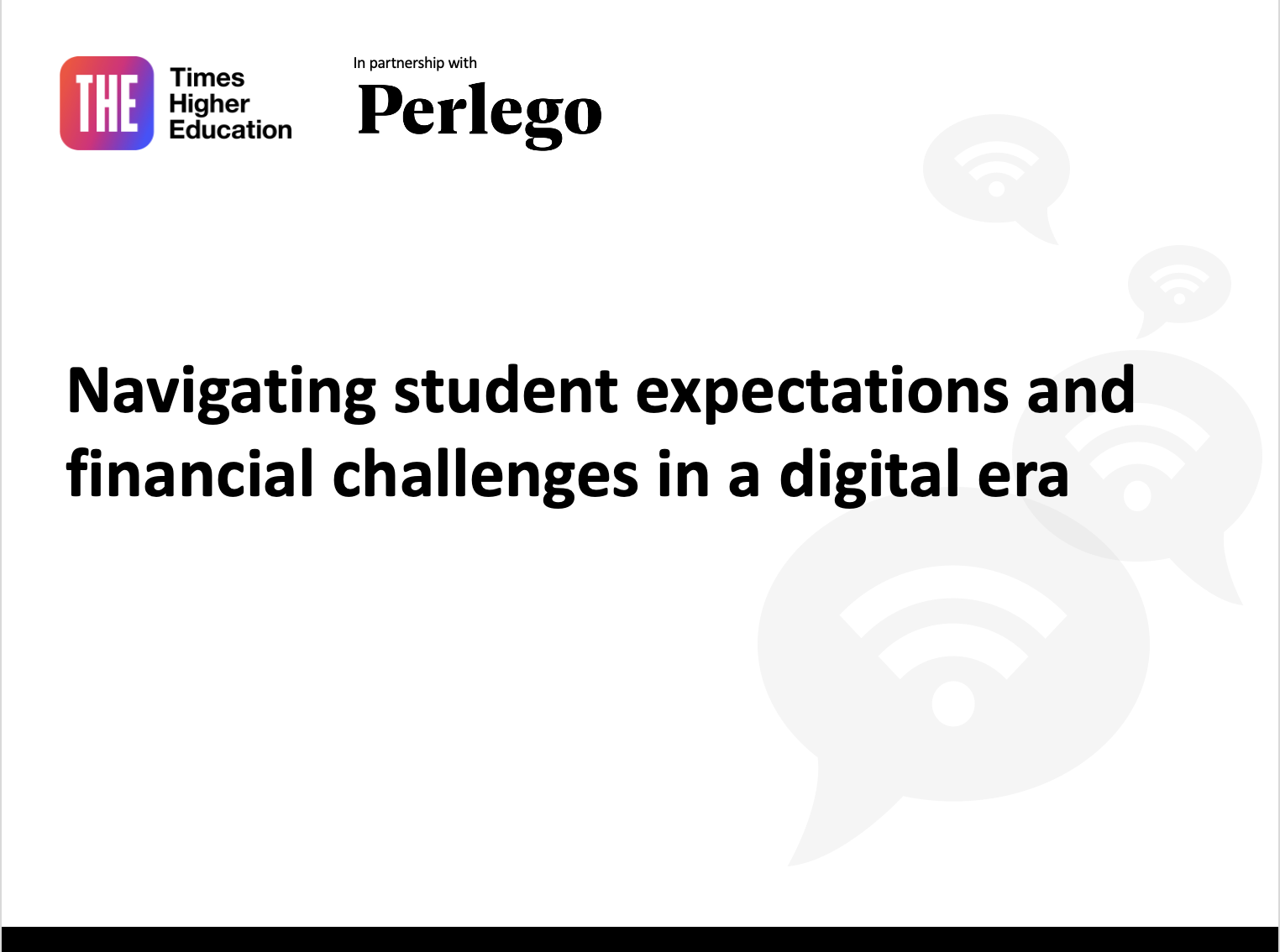
Adopting new digital tools to empower modern learners amid financial challenges
While the digital revolution has created a host of new opportunities in the higher education sector, it has also introduced new challenges, especially around developing flexible learning environments and pedagogies that learners today expect. During a THE webinar, experts from the higher education sector discussed how universities can adopt innovative digital tools to offer inclusive and flexible learning experiences. The webinar highlighted insights from the white paper, titled Changing student expectations and the future of higher education, produced by THE in partnership with Perlego.
The panellists explored how student expectations of higher education are changing and the various factors behind these shifts. Lisa Harris, director of digital learning at the University of Exeter Business School, noted that student expectations are not only evolving, but also vary widely.
Students expect immediate access to resources and different types of learning materials and approaches, said Anica Zeyen, vice-dean for equality, diversity and inclusion in the School of Business and Management at Royal Holloway, University of London. “Students want different ways of engaging with materials,” Zeyen said.
“The way that students are interacting with text is fundamentally changing,” said Matt East, director of higher education at Perlego. As a digital learning tool, Perlego provides access to over 1.5 million ebooks, enabling students to discover books that are relevant to their subject or areas of interest with ease. “What we’re finding is that students are actively engaging in a huge variety of books beyond their syllabus,” East said.
Christopher Umfreville, deputy dean of education in the College of Business and Social Sciences at Aston University, discussed the factors that lead to a “spectrum of demand” among students, such as financial pressures, personal responsibilities and their broader interactions with technology in daily life. Financial challenges can also have an impact on students’ access to digital resources.
Institutions must design flexible learning opportunities that recognise these barriers, Umfreville said. “It’s about recognising that students may not have access to particular hardware or that the hardware they have may not necessarily have the computing power that some things need.Universities should make accessing resources as easy for them as possible.”
Alongside higher education, the influence of technological change is also felt in the workplace, affecting how institutions equip students for future employment. Umfreville spoke about using AI tools to enhance interpersonal skills and authentic learning experiences, while emphasising the need to view “AI as augmenting the work we’re doing, rather than replacing it.”
It’s important to empower students by cultivating essential skills such as adaptability, resilience and critical thinking, the panellists said. “We have to rebuild our educational provision around skills,” said Zeyen.
Harris highlighted AI’s potential to enhance critical thinking but also the risk of over-reliance. “If you can encourage people to use it in positive ways and give examples of how it can be used in positive ways, that’s tipping the scales in the right direction,” she said.
The panel:
- Matt East, director of higher education, Perlego
- Lisa Harris, director of digital learning, University of Exeter Business School
- Sreethu Sajeev, branded content deputy editor, Times Higher Education (chair)
- Christopher Umfreville, deputy dean of education, College of Business and Social Sciences, Aston University
- Anica Zeyen, vice-dean for equality, diversity and inclusion, School of Business and Management, Royal Holloway, University of London
Download the white paper Changing student expectations and the future of higher education.

